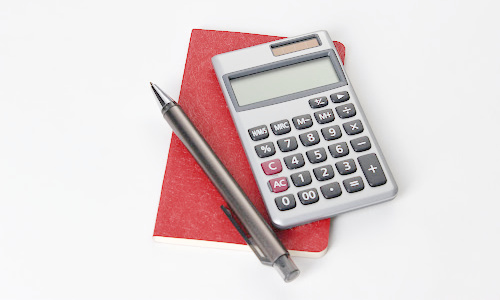In this post: Financial self care is just as critical as any other area of self care. Here are some financial self care ideas to help you take better control of your money.
The persistent piercing rasp filled the room. “I’m sorry to bother you but I don’t know who else to turn to.” It was the voice of my neighbor.
“I’ve been laid off for the past two months. This month’s rent is due within the next week and I just don’t have it. Is there any way that you can help me?”
Taking care of your finances is an important aspect of self-care. You can use financial self-care to help you feel empowered, secure, and in control of your money.
Plus, it’s a great way to set yourself up for long-term success. Here are some simple financial self-care ideas that every woman should consider.
Table of Contents
What Is Financial Self Care?
Financial self-care is, in a nutshell, creating a plan to achieve financial stability. It’s the practice of taking time to look after and plan for your financial well-being.
This includes things like budgeting, planning for retirement, creating an emergency fund, avoiding debt and learning more about investments and money management.
You and I both know that money can be one of the biggest stressors so your financial health is important to help reduce worry, confusion and stress related to money.
And, stressing about it can affect you both physically and mentally .Physically, it can lead to symptoms such as headaches, muscle tension, fatigue, sleep disturbances, and increased heart rate.
Mentally, it can cause anxiety, worry, depression, and a negative impact on one’s overall well-being and quality of life. If you’re saddled with chronic financial stress, it can also lead to poor decision-making and affect your relationships.
How Can You Practice Self Control With Your Money?

An important aspect of financial self-care is learning how to practice self-control with your money. This means setting a budget and sticking to it, tracking your spending, avoiding impulse purchases, and creating a plan for long-term savings.
Here are some steps to help you take control of your money:
- Set financial goals:
Determine what you want to achieve with your money, such as saving for a down payment on a house or paying off debt.
2. Create a budget:
Make a list of your monthly income and expenses to see where your money is going.
3. Track your spending:
Keep track of every purchase you make to see where you can cut back.
4. Reduce expenses:
Look for ways to cut back on discretionary spending, such as dining out or entertainment.
5. Avoid impulse purchases:
Take time to think before making any unnecessary purchases and stick to your budget.
6. Build an emergency fund:
Set aside a portion of your income for unexpected expenses.
7. Stay focused on long-term goals:
Keeping your financial goals in mind, such as saving for retirement or paying off debt, can help you resist impulse purchases.

8. Pay off your debt:
Focus on paying off high-interest debt, such as credit card balances, first.
9. Avoid credit card debt:
Use credit cards wisely and pay off the balance in full each month to avoid interest charges.
10. Delay gratification:
Learning to wait for things you want and prioritize your spending on essential items can help increase self-control.
11. Find alternatives to spending:
Find ways to have fun and relax without spending money, such as taking walks, watching the sunset or reading a book.
12. Use cash instead of cards:
Using cash can help you be more mindful of your spending and physically see how much you are spending.
13. Seek help:
Consider seeking the advice of a financial advisor or taking a financial education course to learn more about managing money and increasing self-control.
14. Reward yourself:
Setting up a reward system for meeting financial goals can help motivate you to maintain self-control and stick to your budget.
Remember, taking control of your money takes time and discipline, but the payoff is worth it in the end.
What Are Some Ways You Can Save Money?

There are so many reasons why you should save your money. For one, When you have savings it gives you financial security as it provides a safety net for any unexpected expenses or emergencies.
Secondly, it helps you to reach your long-term financial goal. So whether you want to buy a house, buy a car or even start a new business it can help you to meet your goal.
It can also provide you with options and the freedom to make choices. For instance, if you want to make a check off on your bucket list by taking your dream vacation or even quitting your job, you won’t have to stress about it.
Last but not least, when you have savings it gives you independence and you’ll have more control over your life.
So look around you and if you’re letting money slide through your fingers put the brakes on it.
Practical Ways To Save Money

Here are some practical ways that you can save money:
- Reduce unnecessary expenses, such as eating out or subscription services you rarely use.
2. Shop for sales and use coupons.
3. Use generic or store-brand products instead of name-brand.
4. Cut back on entertainment costs, like movies or concerts.
5. Avoid impulse purchases and wait 24 hours before making any big purchases.
6. Cook at home instead of eating out.
7. Use a clothesline or drying rack instead of a dryer whenever possible.
8. Use public transportation or carpool instead of driving alone.
9. Save a portion of your income each month and make it a habit.
10. Refinance your mortgage or loans to lower your monthly payments.
11. Seek discounts for student, military, senior or other memberships you may have.
12. Invest in a good-quality vacuum cleaner and regularly clean your own carpets instead of hiring a professional.
13. Use energy-efficient appliances and turn off lights and electronics when not in use.
14. Seek professional financial advice for long-term savings and investment strategies.
What Are 5 Healthy Financial Habits?

Having healthy financial habits can greatly impact your quality of life and set you on a path toward financial stability and security. These are crucial for a successful and stress-free life. It allows you to manage your money effectively, save for your future goals, and live within your means.
Here are some healthy financial habits to try:
1. Track your spending
When you track your spending, it will help you to better understand where your money is going and make more informed decisions about how to use it.
2. Set a budget
Creating a budget allows you to manage your income and expenses more effectively so that you can save more of what you earn.
3. Put aside money each month
Make it a priority to save money each month. This could be for an emergency fund, retirement, or other important goals.
4. Avoid debt
Try to keep credit card spending to a minimum and pay off any debt you have as quickly as possible.
5. Invest in yourself
Investing in your own education and development is one of the best ways to increase your earning potential and improve your financial security.
Related: How to invest in yourself as a woman
Financial Self Care Ideas

In today’s world with all the consumerism taking place, it’s so important to be mindful of your spending and be deliberate about how you use your money.
Even though it may seem overwhelming in the early stages, there are many simple yet effective ways that you practice financial self-care.
So, whether you are just starting your financial journey or looking for ways to enhance your existing financial practices, let’s explore these ideas for financial self care that can help to reduce your financial stress, and make you feel more secure and in control of your finances.
1. Create A Budget And Stick To It
I can’t say this enough. Creating a budget and sticking to it is one of the best ways to make sure you’re staying on top of your finances.
A budget should include all your income and expenses so that you have an accurate picture of how much money you have coming in each month, as well as how much money is going out.
It’s also essential to set realistic goals for yourself when creating a budget. That way, you won’t be tempted to overspend or dip into your savings unnecessarily.
Once you create a budget, make sure you stick to it.
2. Set Financial Goals
Setting financial goals is another great way to take control of your finances. Whether it’s saving up for a new car or paying off debt.
When you set specific goals with timelines it will help to keep you motivated and on track with managing your money.
But, before you set any goals, make sure they are achievable and realistic; otherwise, they won’t do much good.
3. Beware Of Impulse Purchases

It can be easy to get carried away by impulse purchases, after all, who doesn’t love a good sale?
But before you hit ‘buy now’ on that cute pair of shoes or latest tech gadget, ask yourself if it is something that will truly benefit you in the long run, or if it’s just an impulse purchase that may not bring any value down the line.
By being mindful about how and where you spend your money can help ensure that every cent counts.
4. Automate Your Savings
Automating your savings is a great way to make sure you’re saving money each month. Set up automatic transfers from your checking account to your savings so you don’t have to think about it.
You can also set up recurring deposits that will automatically transfer a certain amount of money into your savings every month.
When you automate your savings, it can help you quickly build up a healthy emergency fund and save for the future.
5. Invest Wisely

When it comes to investing your money, do your research and make sure that you’re making wise investments.
Consider the risks associated with each investment and make sure that they align with your financial goals.
For example, if you’re looking for long-term growth, investing in stocks or mutual funds may be a better option than investing in risky investments like penny stocks.
Investing wisely will make your money work for you and can help you reach your financial goals faster and more effectively.
6. Monitor Your Credit Score
Your credit score is one of the most important factors when it comes to managing your finances, so make sure that you’re monitoring it closely.
You can request a free credit report from the major credit bureaus once a year, so make sure that you’re doing this regularly.
Checking your credit score can help you identify any potential issues and take steps to correct and improve it if necessary.
7. Treat Yourself

Don’t forget to treat yourself from time to time! Managing your finances can be stressful and overwhelming, so it’s important to reward yourself for all of your hard work.
And, it doesn’t have to be expensive. Whether it’s a spa day or a night out with friends, make sure that you give yourself something to look forward to.
8. Stay Organized
Make sure that you stay organized when it comes to managing your finances. Review your accounts regularly, keep track of all your bills and expenses.
And, make sure that you’re setting aside money for savings each month. Staying organized will help ensure that you’re always in control of your finances!
Financial self-care can help you feel more confident and secure, as well as set yourself up for long-term success.
9. Get Professional Help
If you’re feeling overwhelmed with managing your finances, don’t be afraid to seek professional help.
A financial advisor or planner can provide personalized advice on how to manage your money and reach your financial goals.
Plus, they can help you make sure that you’re investing wisely and ensure that your money is working for you.
Financial Self-Help Books And Resources
There are plenty of great books and online resources available to help you learn more about money management and financial self-care. Here are a few:
- The Total Money Makeover by Dave Ramsey
- Smart Women Finish Rich by David Bach
- The Simple Path to Wealth by JL Collins
- Financially Fearless: The LearnVest™ Program for Taking Control of Your Money by Alexa von Tobel
- Mint.com – a great online tool for tracking your finances and setting financial goals
Conclusion On Financial Self Care Ideas
Financial self-care is essential if you’re looking to take control of your finances and achieve your financial goals.
Creating a budget and sticking to it helps keep track of expenses while setting financial goals provides motivation along the journey toward success.
Also, beware of impulse purchases since these can often derail even your most well-thought-out budget.
With these tips in mind, you can improve your financial well -being.
What financial practices do you use to help you stay on top of your financial goals? Comment below!




















